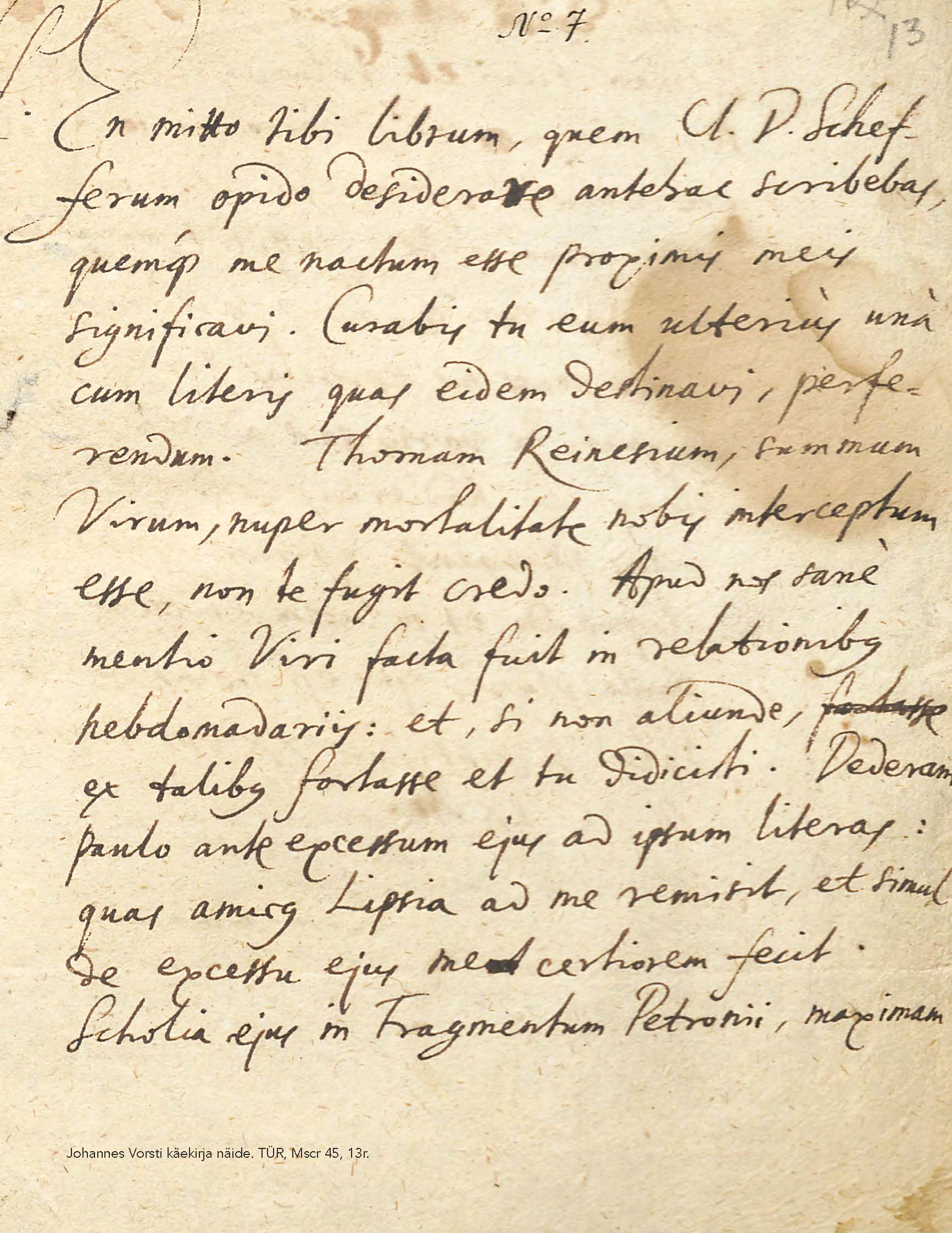Uurimusi meie kogudest
DOI:
https://doi.org/10.15157/tyrtar.v13i1.24239Abstract
Anni Polding.
A Comparative Analysis of Key Words in Karl Morgenstern’s Inauguration Speech and in the Exercises of the Students of the
Pedagogical-Philological Seminary of the University of Tartu. Summary of a Master’s thesis.
The Master’s thesis examined the influence of Karl Morgenstern’s Latin inauguration speech „Oratio de litteris humanioribus, sensum veri, honesti et pulchri excitantibus atque acuentibus” („Speech on humanistic education, to sharpen and stimulate the knowledge of truth, beauty and goodness”), given in Danzig in 1798, on the works of his students at the University of Tartu.
The first part of the thesis provides an overview of Johann Karl Simon Morgenstern’s role as a provider of humanistic education and the activities of the General Teachers’ Seminar and the Pedagogical-Philological Seminar of the Imperial University of Tartu. The student works included in the researched corpus came from the Pedagogical–Philological Seminary collection of the UT Library (F.15).
The second part of the work uses the methods of digital humanities. The 50 most frequently occurring meaningful words were selected by word frequency analysis. The programming language R was used to find key words. Thus, a ranking of key words was formed, in which the first were: animus [‘soul’], studium [‘studies’], litterae [‘literature/written word’], verus/verum [‘truth, real’], homo [‘man’], lingua [‘language’], sensus [‘knowledge’], antiquus [‘ancient’], but also in combination humanus and humanitas [‘belonging to humanity’, ‘humanity’]. Since the word animus appeared most often both in Morgenstern’s speech and in the
whole corpus, the following qualitative analysis dealt with the use of this term in different contexts and in combination with other key words. It turned out that Morgenstern focused on educating young people and influencing their souls, especially by developing their knowledge of various basic values (truth, beauty, goodness/goodness). For the latter, Morgenstern used the word sensus throughout his speech. Comparing the use of the word animus, it turned out that Karl Morgenstern and his students at the Pedagogical-Philological Seminar used it for similar purposes and in the same sense, indicating dealing with the soul and its properties, as well as in the sense of paying attention. At the same time, both the students and their role model Morgenstern considered it important that the soul and its powers were trained through the written word and the texts of ancient authors. This confirmed the hypothesis that Karl Morgenstern’s students adopted his ideas in their written works.
Marten Teemant.
Johannes Vorst’s Letters to Johann Moth. Summary of a Master’s thesis.
The Master’s thesis examines the correspondence from the 1660s between Johannes Vorst, the Head of the Electoral Library of Brandenburg, and his former student, later an official of the German Chancellery (a Danish government agency) and the Archivist of the Royal Archives of Copenhagen, Johann Moth.
Johannes Vorst (1623–1676), one of the two directors of the Electoral Library of Brandenburg since 1662, corresponded with Johann Moth (1639–1705), his former student at the Flensburg Latin School. Vorst had been the Rector of this school since 1653. The convolute (Mscr. 45), containing Vorst’s letters and many other sources, including other people’s letters to Moth, was gifted together with 21 other convolutes to the Tartu Imperial University Library in 1806 by the High Pastor of Riga, Andreas Immanuel von Essen. The gift was mediated by the Tartu University professor of classical philology, aesthetics, rhetoric, literary and art history Johann Karl
Simon Morgenstern. Until now, the gifted convolutes have received little attention from researchers.
Downloads


